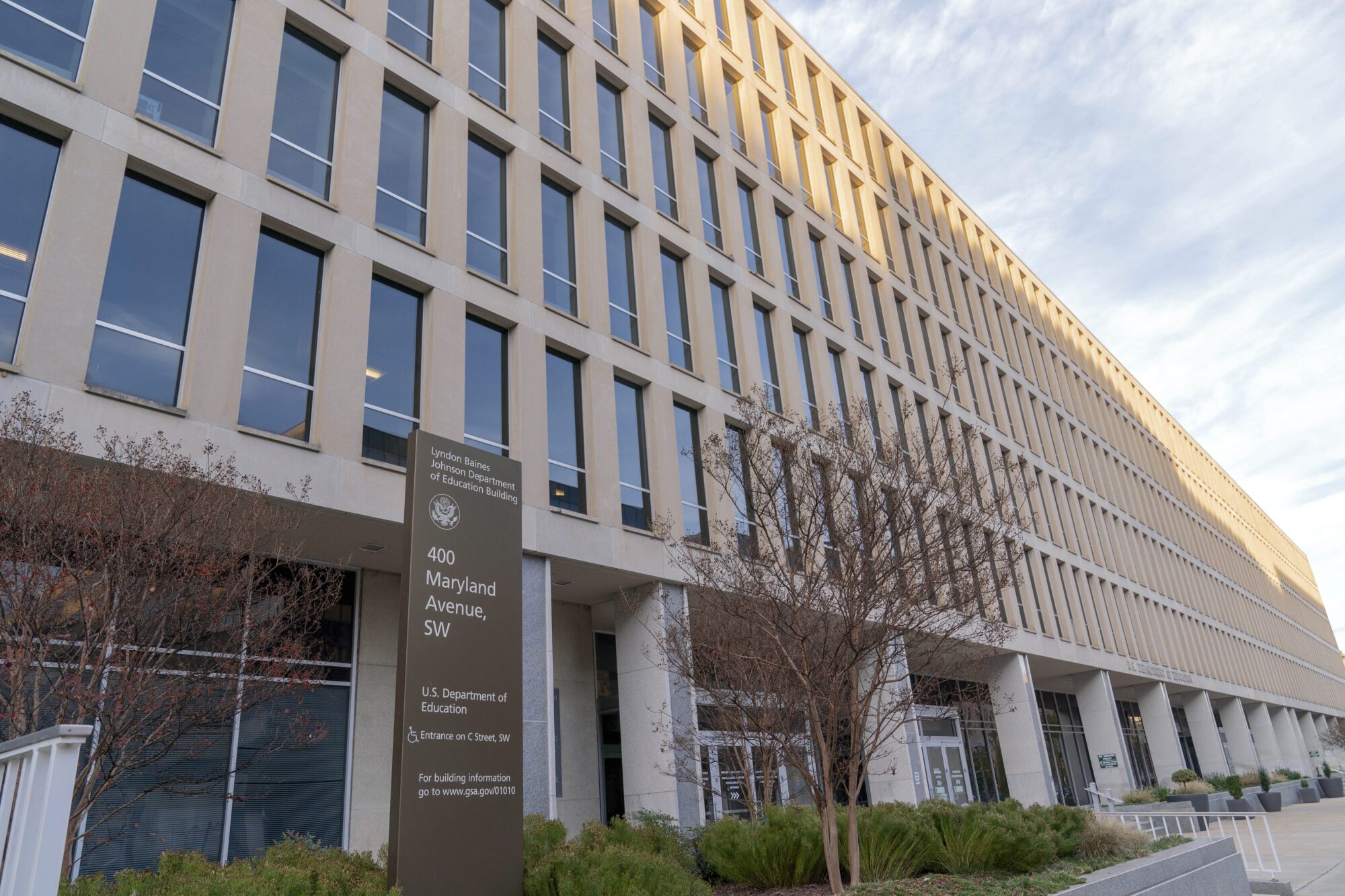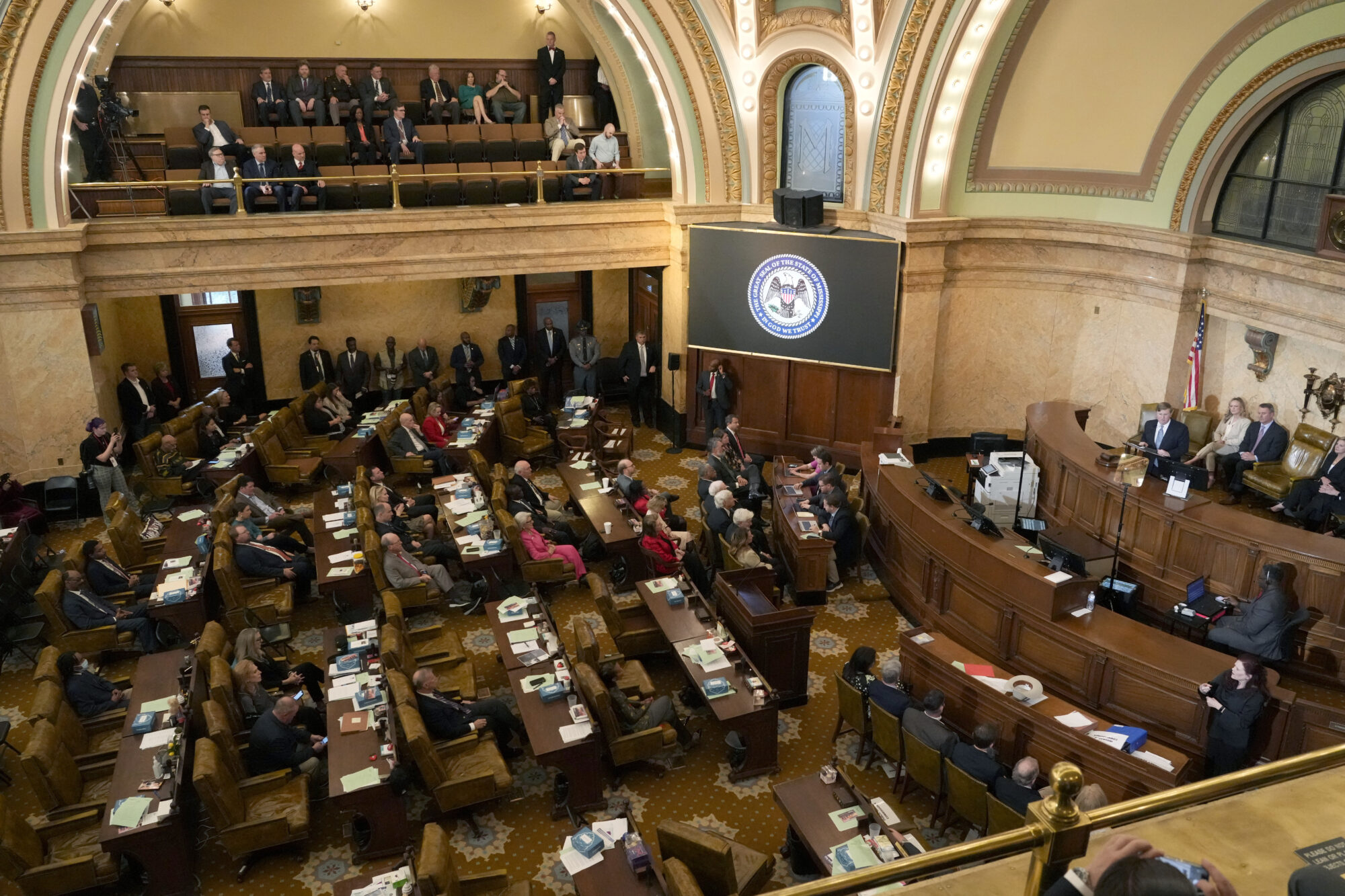
Mississippi House of Representatives chamber, Monday, Feb. 26, 2024, at the state Capitol in Jackson, Miss. (AP Photo/Rogelio V. Solis)
- Here is a look back at some of the most talked about headlines from the 2025 regular legislative session.
The 2025 regular legislative session has come and gone, after lawmakers gaveled out sine die late last week.
As previously reported, Governor Tate Reeves (R) will be calling legislators back to the Capitol in the weeks ahead to finalize the state’s $7 billion Fiscal Year 2026 budget, after deliberations between the House and Senate broke down in the waning days of the session.
The discord, while bubbling under the surface much of the session, rose to a fever pitch after the House knowingly concurred on the Senate’s amended version of the income tax elimination legislation which included an error that allows the state to phase out the tax at a faster pace than the Senate intended. That legislation has now been signed into law by Governor Reeves, who has said adjustments to the measure could be made down the line, if need be.
Governor Reeves said Thursday that it is best now for lawmakers “to go to their corners, get some water and towel off” before he calls a special session.
The lingering question is whether Reeves will add other conservative policy items to the special session call, namely legislation aimed at expanding education freedom, all of which died ing the regular session, or reducing the regulatory burden on the state’s healthcare system by way of further certificate of need reforms.
Here is a look back at some of the most talked about headlines from the 2025 regular legislative session.
With Governor Reeves’ signature, Mississippi now on track to end the tax on work
Governor Reeves signed the most significant tax reform legislation in state history into law at the Governor’s Mansion near the end of the session, setting Mississippi firmly on a path towards ending its tax on work.
In concert with the 2022 income tax reform, the new law will usher in the following changes:
- The flat income tax rate in the state will drop from 4.4 percent this year to 3 percent in 2030 (an annualized cut of $647 million)
- Additional cuts to the income tax rate down to 0 percent will occur beginning in 2031 based on the state meeting revenue growth triggers
- The sales tax applied to grocery purchases drops from 7 percent to 5 percent on July 1, 2025 (an annualized cut of $127 million)
- Approximately $200 million in additional revenue for roads and bridges will be produced through a 9-cent increase in the fuel excise tax over a 3-year phase-in period
- A Tier 5 in the Public Employees Retirement System (PERS) for newly hired government workers is created based on recommendations from the PERS Board (does not impact existing workers or retirees).
Lawmakers could reconsider a House proposal to provide $100 million in additional annual funding for PERS through redirecting lottery proceeds when they meet for a special session.
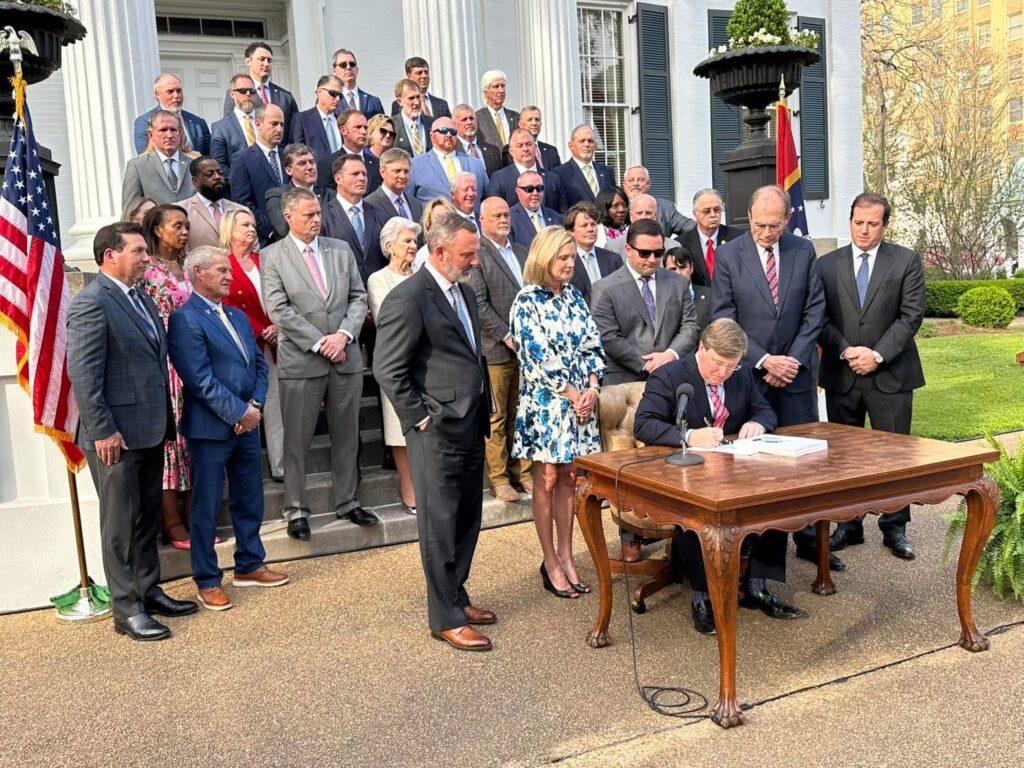
Lawmakers seek to advance merit over DEI in Mississippi public schools and universities
A bill that prevents public schools and public postsecondary educational institutions across the state of Mississippi from engaging in discriminatory practices is headed to the governor’s desk, now that both chambers of the Legislature have adopted a conference report this week.
The legislation – HB 1193 – is titled the “Requiring Efficiency For Our Colleges and Universities System and Education System (REFOCUSES) Act,” otherwise referred to as the anti-DEI bill. It prevents universities, community colleges, public schools, and charter schools from using Diversity, Equity, and Inclusion practices when selecting faculty, providing academic opportunities, and offering student engagement.
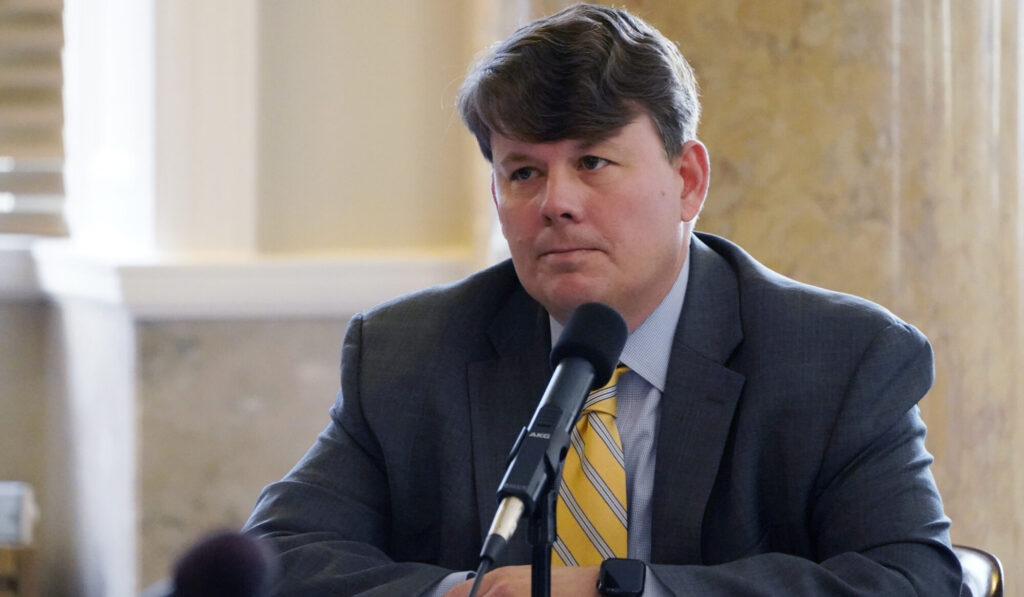
Senate kills slate of House education reforms, drawing rebuke from Speaker White
The Mississippi House of Representatives passed three measures to increase education options for families in the Magnolia State early in the session. All three died without a vote in the Senate.
HB 1435 would have made a process already in Mississippi law for a child to transfer between public schools slightly easier by removing the veto power of the school the child wants to leave.
HB 1617, commonly referred to as the Tim Tebow Act, would have allowed homeschool students to participate in extracurricular activities at the public school where they live.
Meanwhile, HB 1432 sought to expand where public charter schools could be opened in C-rated districts.
In the wake of Senate leadership’s decision to allow the bills to die, House Speaker Jason White (R) told Magnolia Tribune, “Mississippi parents are demanding more choices. We are in a ruby red state that voted overwhelmingly for President Trump. These policies align with the direction he is leading our country. We should be able to be a part of that.”
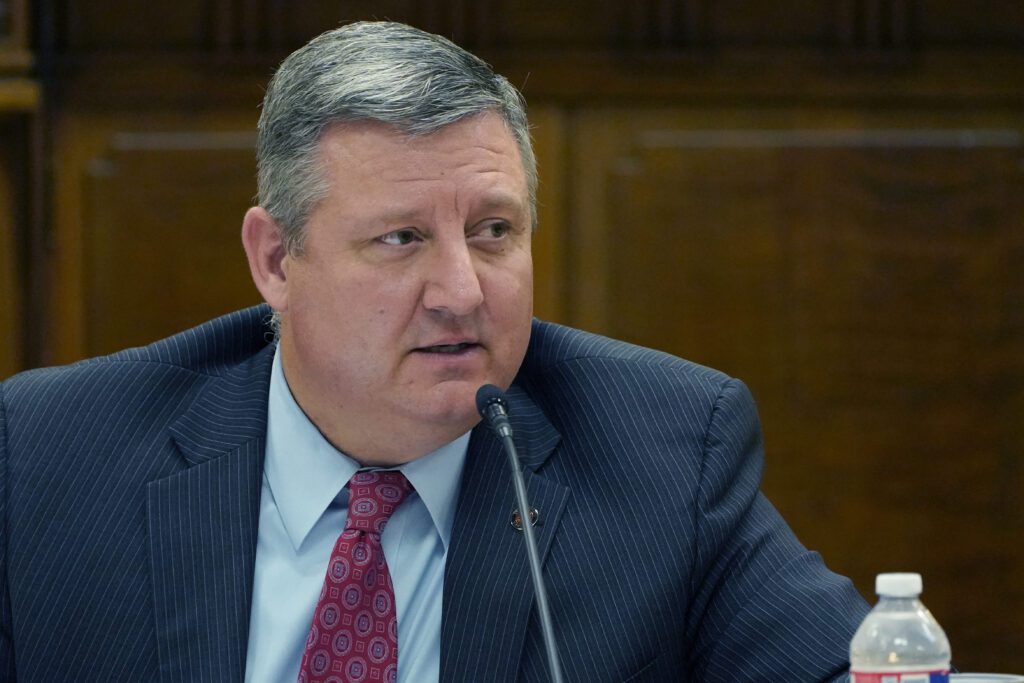
Senate lets In-person Excused Voting bill die, plans to take up similar measure next session
Early voting, as proposed by State Senate Jeremy England (R), was not well received by Governor Reeves, resulting in a social media battle that carried over into the Capitol. After Reeves expressed his displeasure with England’s 15-day, no excuse proposal, the House decided to back away and offer their own tweaks to absentee voting.
After a compromise passed both chambers, the resulting In-person Excused Voting bill was held on a motion to reconsider and allowed to die even after the House unanimously agreed to the measure and the Senate overwhelmingly passed it as well.
England said that when working through the conference report, there was some language that needed to be fixed, “things that could have been fixed next year, but I want to get that taken care of in one bill.”
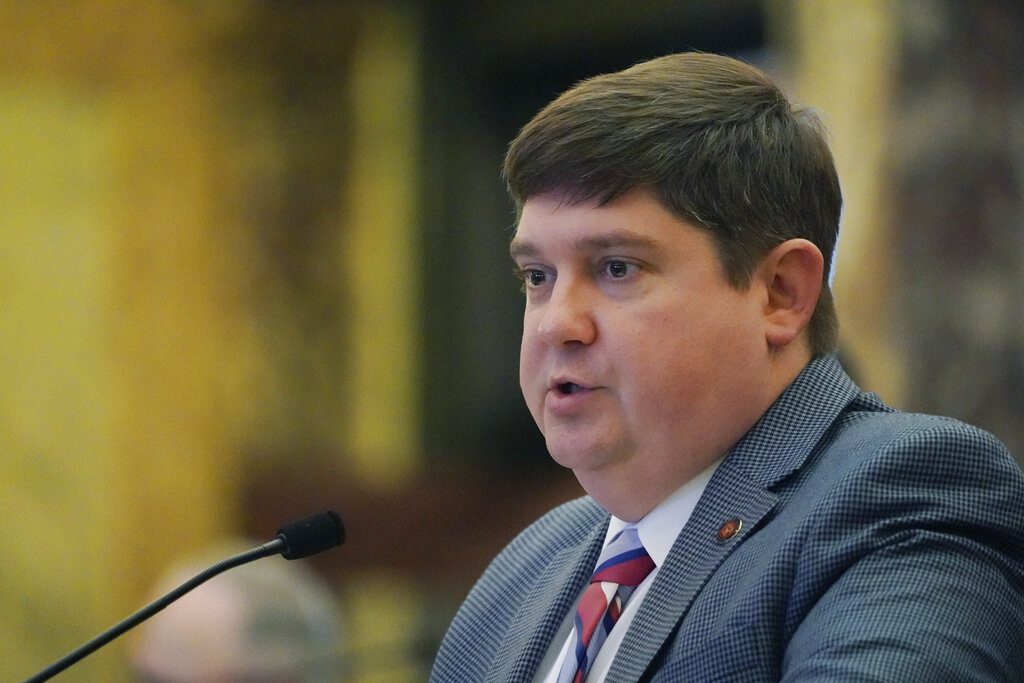
CON reform legislation expected to receive Governor’s signature
While not as strong as when it was introduced, a bill that makes revisions to Mississippi’s certificate of need (CON) laws is on the governor’s desk.
HB 569 raises the threshold for a medical facility to seek a CON when purchasing medical equipment. It also tasks the Mississippi Department of Health with conducting a study to see what other changes may need to be made to CON laws, particularly as it relates to small hospital’s dialysis units, geriatric psychiatric units, and acute adult psychiatric units.
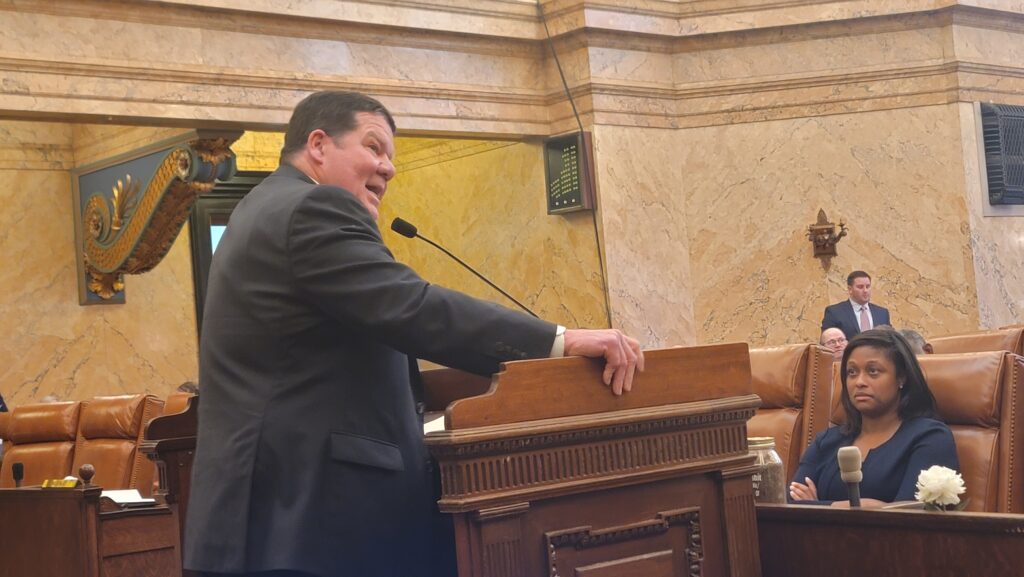
Vapes, Big Tobacco and a new Mississippi registry law
The Legislature quietly sent HB 916 to the governor’s desk. It forces consumers using e-cigarettes to buy exclusively from only three manufacturers and bans virtually all flavored vaping products.
Among the provisions in the legislation is a requirement that the manufacturers of vape products sold in Mississippi must be authorized by the U.S. Food and Drug Administration (FDA). Only three manufacturers of e-cigarettes are authorized by the FDA as of January 2025: Logic Technology Development LLC, NJOY LLC, and R.J. Reynolds Vape Company. NJOY is part of the Altria family of companies which also includes Philip Morris USA while Logic Technology is now owned by Japan Tobacco International.
At least two of these manufacturers – Altria and R.J. Reynolds – have been actively lobbying legislators in various states to adopt such laws and some 10 other states have enacted similar measures.
In Mississippi, the new law also requires a listing or registry of all vape products sold in the state.
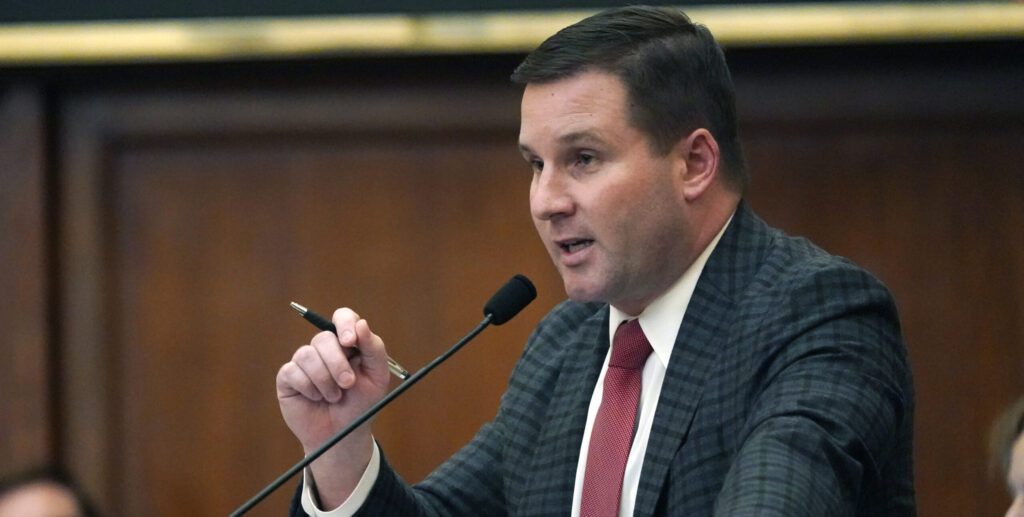
House passes Senate’s direct wine shipping bill
A bill to allow the direct shipment of wines to Mississippi residents was signed into law by Governor Reeves.
It took two attempts, some overnight wrangling, a couple changed votes, and a few absences for SB 2145 to pass the Senate late last week. Yet, when the dust settled on Friday, the motion to reconsider the previous failed vote reached the required three-fifths threshold to send the measure to the House for consideration.
Mississippi was one of only three states that prohibited the direct shipment of wines to its residents, as noted during legislative debates.
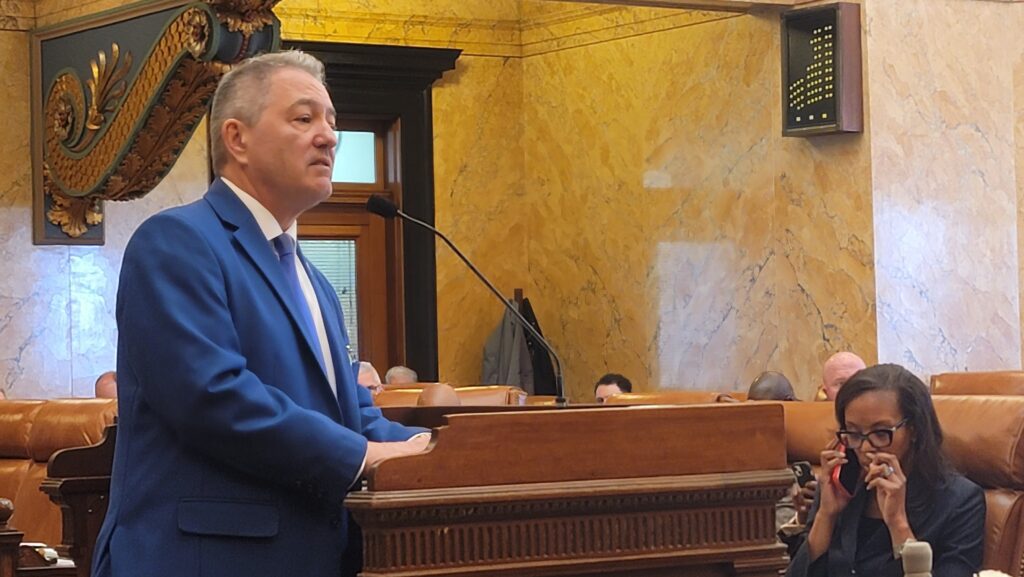
Governor vetoes bill he says seeks to expand Medicaid in Mississippi
Governor Reeves vetoed a bill that would have modified several provisions within Mississippi’s Medicaid program.
Reeves said the bill, SB 2867 or better known as the annual Medicaid Technical Amendments Bill, essentially provided for as an expansion of Medicaid, something he has been adamantly opposed to and repeatedly spoken against during his time as Governor.
In the Governor’s veto message, Reeves states that in his estimation, the bill would have incurred additional recurring costs of $40 million to the overall annual Medicaid budget, of which the state would have to fund 24 percent.
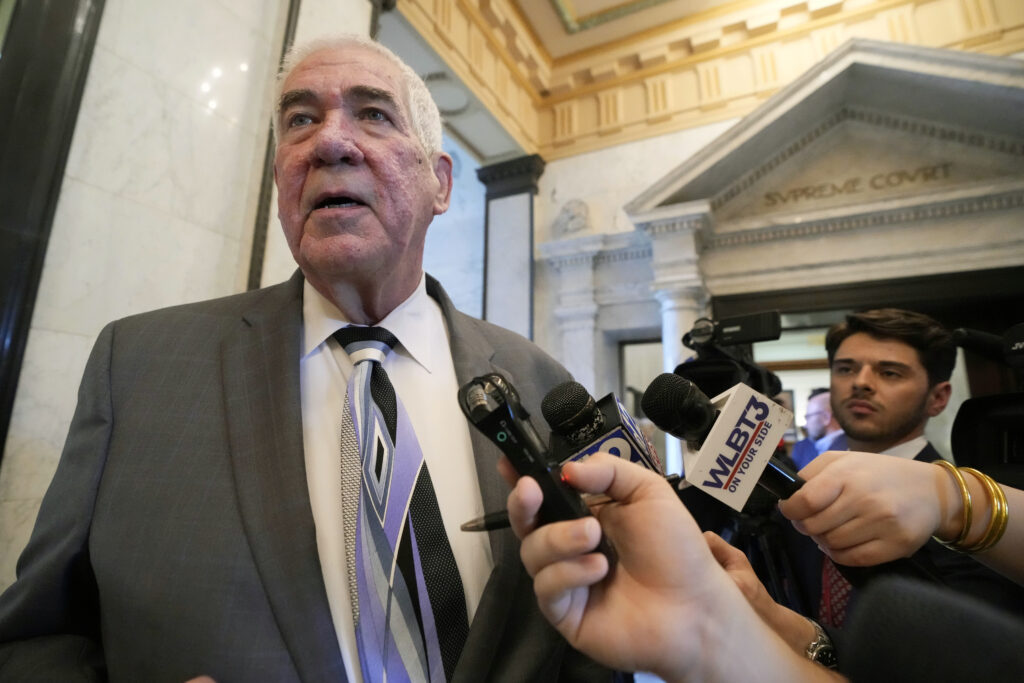
Revision of presumptive Medicaid eligibility for pregnant women goes into law without Governor’s signature
Legislation meant to conform Mississippi’s Medicaid provisions regarding presumptive eligibility for pregnant women to federal regulations has gone into law without the signature of Governor Reeves. Presumptive eligibility refers to the process of granting Medicaid services to those who may qualify before their eligibility is verified by the program.
State Rep. Missy McGee (R), Chair of the House Medicaid Committee, said that when last year’s bill was sent up to the Centers for Medicare and Medicaid, a few issues were found that conflicted with federal law, such as a timeframe conflict concerning how long presumptive eligibility lasts and whether the mother-to-be has to show proof of income.
Thus, this year’s measure – HB 662 – removed language that requires women to show proof of income to align with federal guidelines, a discrepancy lawmakers said they learned about over the summer.

Legislative redistricting plans adopted in House, Senate setting up 15 special elections later this year
Each chamber has now adopted the other’s legislative redistricting plans setting up special elections for House and Senate seats later this year. However, passage of the measures did not come without voiced opposition.
This comes after a federal three-judge panel ordered the supermajority Republican Mississippi Legislature to draw and adopt new state legislative district maps during the 2025 session and subsequently hold special elections to fill the seats. The new maps are to reflect new majority-minority districts in both chambers.
The special election schedule for the affected House and Senate districts would be a primary election in August and a general election in November of this year.
Notice of those elections in the affected districts will be forthcoming.
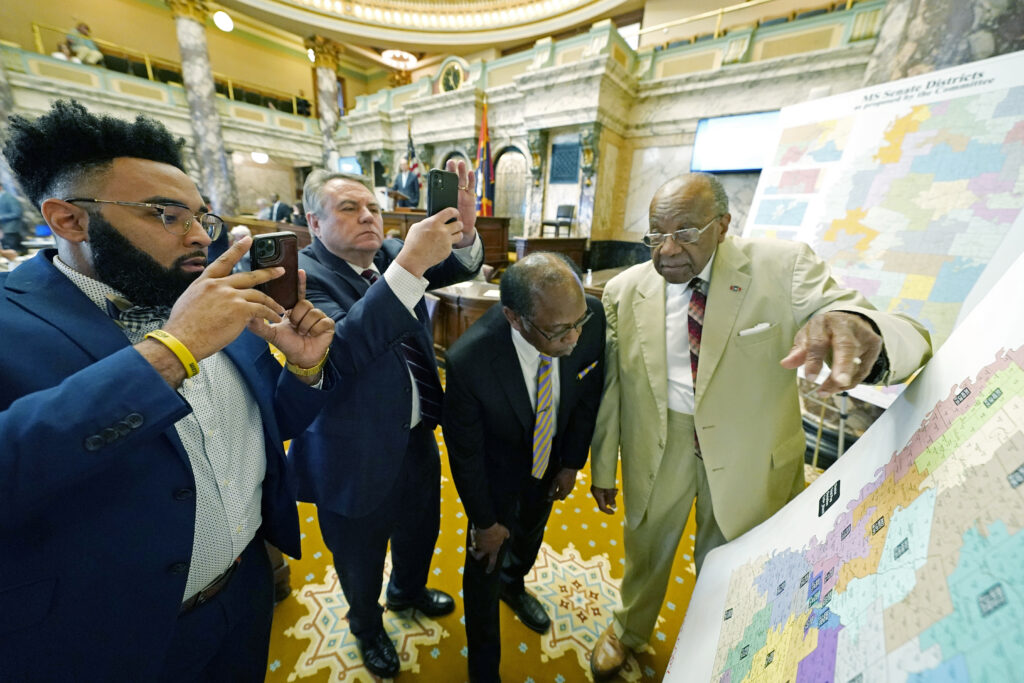
Mississippi explores “One Door” policy to integrate social programs, workforce development
Lawmakers have agreed to form a task force to study workforce and social service reform in Mississippi as the state looks to implement a “One Door” policy. The goal is to improve the state’s labor force participation rate and raise the earning capacity of working Mississippians.
The ultimate goal is to integrate social safety nets and workforce development in a manner that moves people off of welfare and into a sustainable job through a one-stop-shop holistic approach.
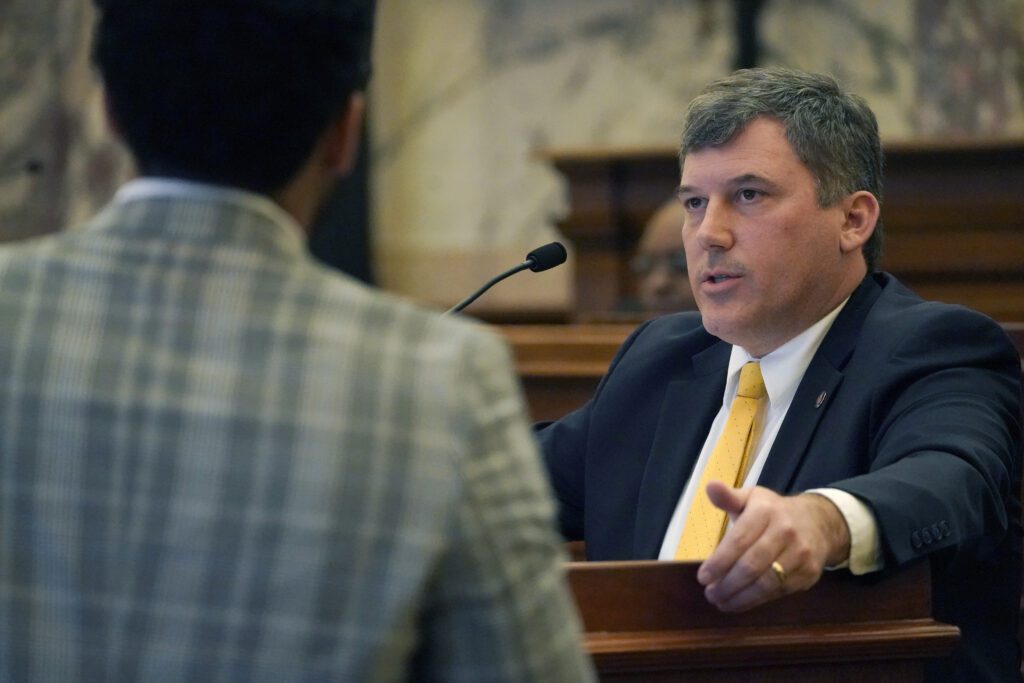
Governor signs state employee paid parental leave legislation into law
State employees will now be eligible for paid parental leave with the passage of HB 1063, which was signed into law by the governor.
The bill, as amended in the Senate, will provide a state employee who is the primary caregiver of a newborn with six weeks of paid leave.

Mississippi lawmakers impose new tax on kratom
Mississippi lawmakers have agreed on at least one solution to deal with kratom – tax products containing the opioid-like substance at a higher rate.
State Rep. Trey Lamar (R) said the bill’s current iteration as it was approved on Monday reflects the work of the Senate and House to define kratom and set the rate at which it will be taxed.
“The final negotiations came in at a 25 percent rate, which is a little bit more than how we tax tobacco,” Lamar described.
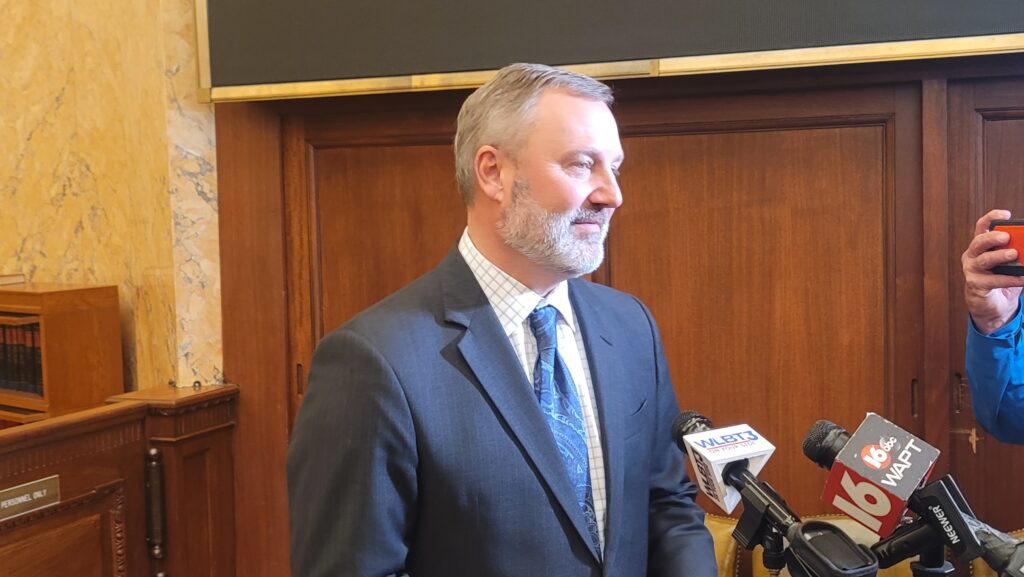
Lawmakers agree to outlaw camping on public property
Lawmakers agree to outlaw camping on certain publicly owned property.
“No person may camp or create a campsite on any sidewalks, streets, sports fields, sports complexes, highways, alleys, roads, passageways or any other public property, except a public property that is otherwise designated for camping by a municipality, county, political subdivision or state, or by state law,” the measure reads.
The bill defines campsite as “a location on any property owned or controlled by a municipality, county or state, state agency or political subdivision of the state where camping materials are placed.”
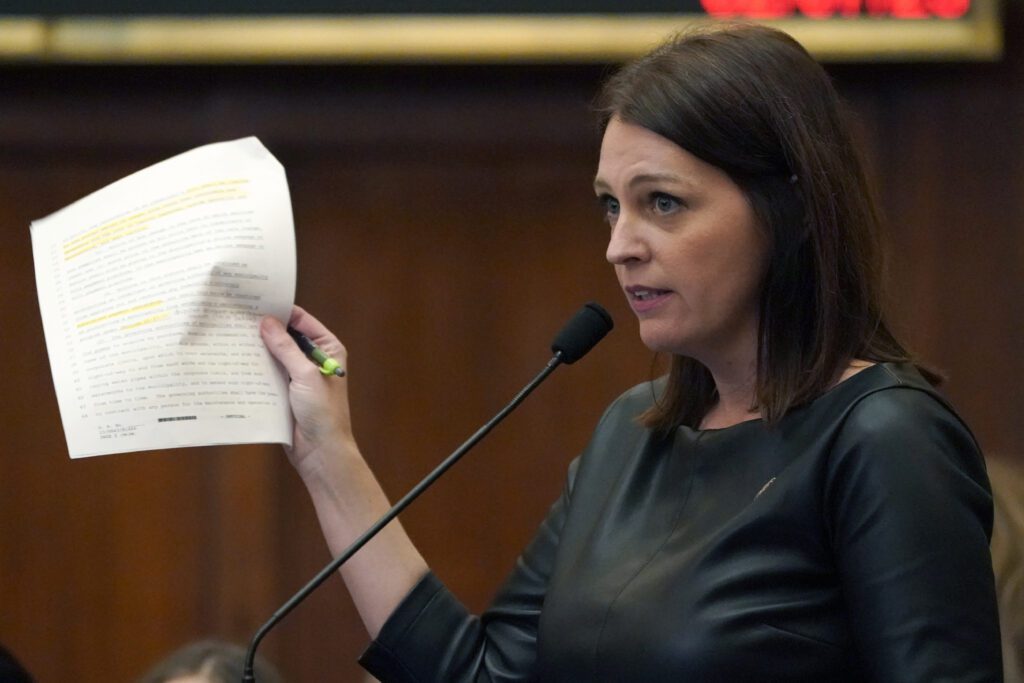
Lawmakers look to provide immunity in reporting a sexual assault where drugs are involved
The six-page bill grants immunity to anyone who reports a sexual assault where drugs or alcohol are involved.
Additionally, the person reporting the assault is immune from penalties for violating a permanent or temporary protective order or a restraining order, corrective actions for violating pretrial release, probation or parole based on a drug violation, and forfeiture of property. However, the measure says contraband is subject to forfeiture.





